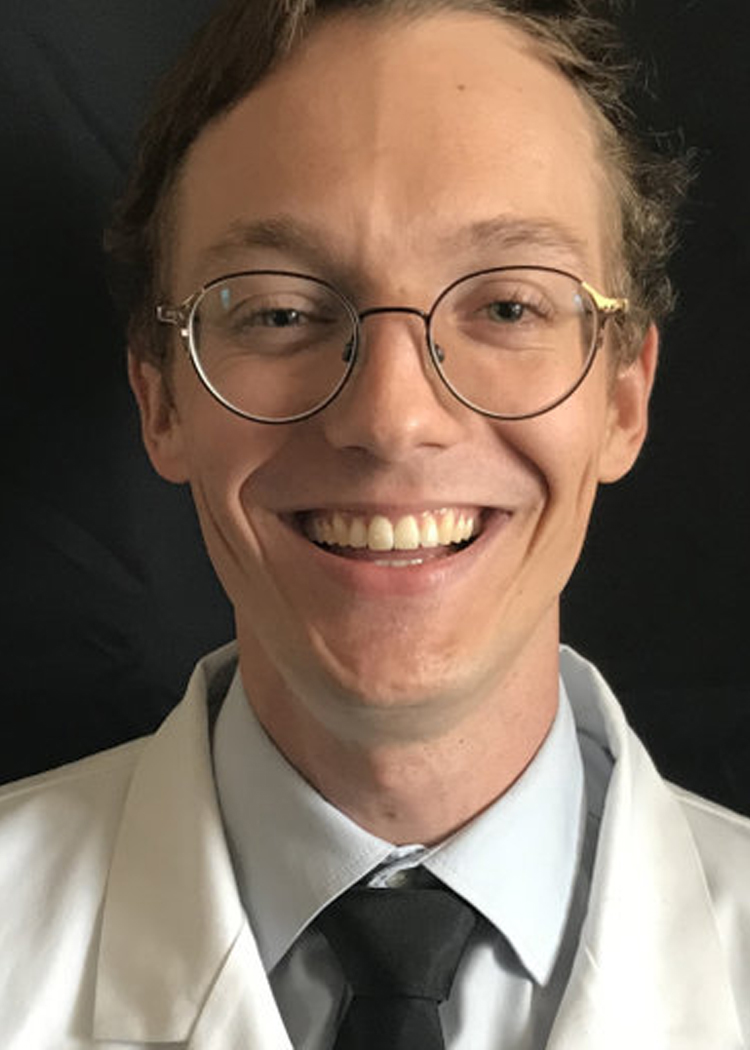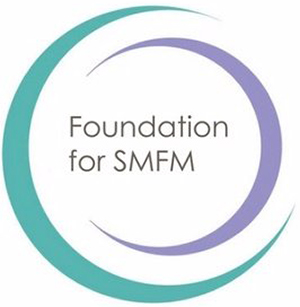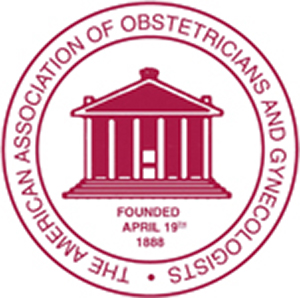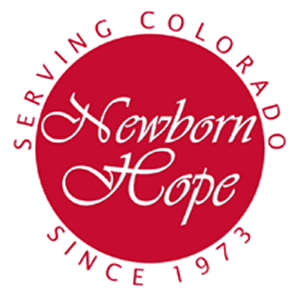CU Anschutz Preterm Labor Research Laboratory (Hurt Lab)
Understanding reproductive physiology and improving the health of women and infants.
CU Anschutz Preterm Labor Research Laboratory (Hurt Lab)
Understanding reproductive physiology and improving the health of women and infants.
Welcome to the CU Anschutz Preterm Labor Research Laboratory (aka Hurt Lab) located at the University of Colorado Anschutz School of Medicine. We are based in the Division of Reproductive Sciences of the Department of Obstetrics and Gynecology.
The goal of the Preterm Labor Research Laboratory (Hurt Lab) is to understand reproductive physiology and apply those findings to improve the health of women and infants.
Our Mission
- To enhance understanding of normal and abnormal reproductive physiology by pursuing new knowledge.
- To train and inspire future generations of reproductive physiologists and clinician-scientists, at all stages and levels.
- To apply basic science to clinical problems to advance women’s health and improve perinatal outcomes.
We are interested in identifying how basic biology influences reproduction, especially the outcomes of pregnancy. One of our primary interests is understanding the role of gasotransmitters in regulating myometrial contractility and parturition timing. We are interested in mechanisms and pathways in the uterus, placenta, and fetus that are altered by acute and chronic nitric oxide and hydrogen sulfide signals. All three classic gasotransmitters (NO, CO, and H2S) are potent uterine tocolytics, and we have used physiologic organ bath pharmacology, calcium imaging, and other approaches to identify their molecular targets and pathways within reproductive tissues. Although we use human tissues occasionally in our studies (myometrial biopsies obtained at the time of cesarean delivery), we are enthusiastic about using transgenic mouse models to dissect the molecular basis of pregnancy physiology. We hope to identify unrecognized pathways to normal labor and fetal development that could be exploited via pharmacologic or nutritional approaches to reduce the chance of preterm labor, the complications of prematurity, and long term disability potentially conferred by abnormal intrauterine development.
At this time, there are three main areas of investigation in our laboratory:
- The novel signal transduction pathways of H2S in uterine smooth muscle, and how H2S contributes to normal pregnancy growth and delivery timing. We perform both ex vivo pharmacology studies using mouse uterine strips, and recently have developed approaches for small animal ultrasound of uterine blood flow that allow us to assess the influence of H2S on angiogenesis fetal nutrient supply during pregnancy.
- The influence of obesity on parturition timing and the role that specific adipokines play in normal and overweight women to suppress or stimulate labor. We are evaluating how adiponectin and its receptors in the uterus change throughout pregnancy and may alter normal birth timing.
- Phosphoregulation of neuronal nitric oxide synthase (nNOS) using mouse knockin models. We have created new mutant mouse lines in order to determine the importance and role of non-calcium dependent nNOS activity in various tissues and organ systems.
Everyone in our lab works both collegially and with some degree of independence on their own project. We are committed to training future obstetrics and reproductive sciences researchers, and participate in the Integrated Physiology, Biomedical Science, and Medical Scientist Training Programs. We welcome all students, residents, fellows, and others to contact us. Armed with curiosity, rigor, persistence, and passion, any of us can make contributions to advancing biomedical knowledge and improving the lives of mothers and their children.
Outstanding Reviewer Award, Biology of Reproduction (July 2018) - Dr. Hurt
CTRC Microgrant Award (February 2018) - Dr. Estin
Society for Redox Biology in Medicine Young Investigator Award (December 2017) - Dr. Guerra
Best Poster Award, CU Department of OB-GYN Research Retreat (October 2017) - Dr. Guerra
Ferring Research Innovation Award for 2018 (September 2017) - Hurt Lab
Postdoc Association Travel Award (September 2017) - Dr. Guerra
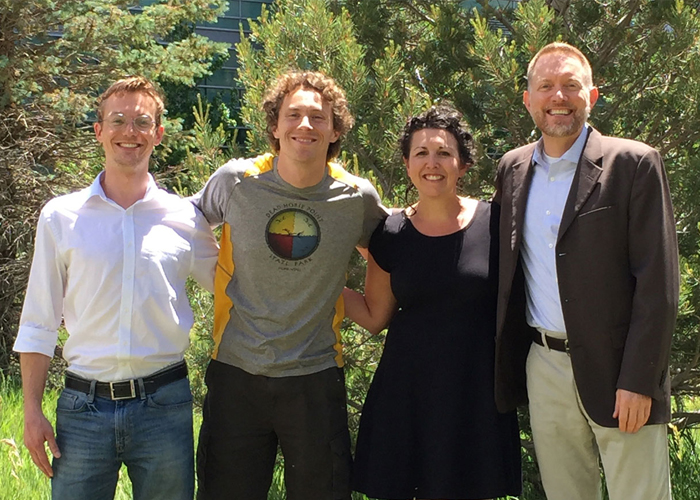
Current Hurt Lab Members
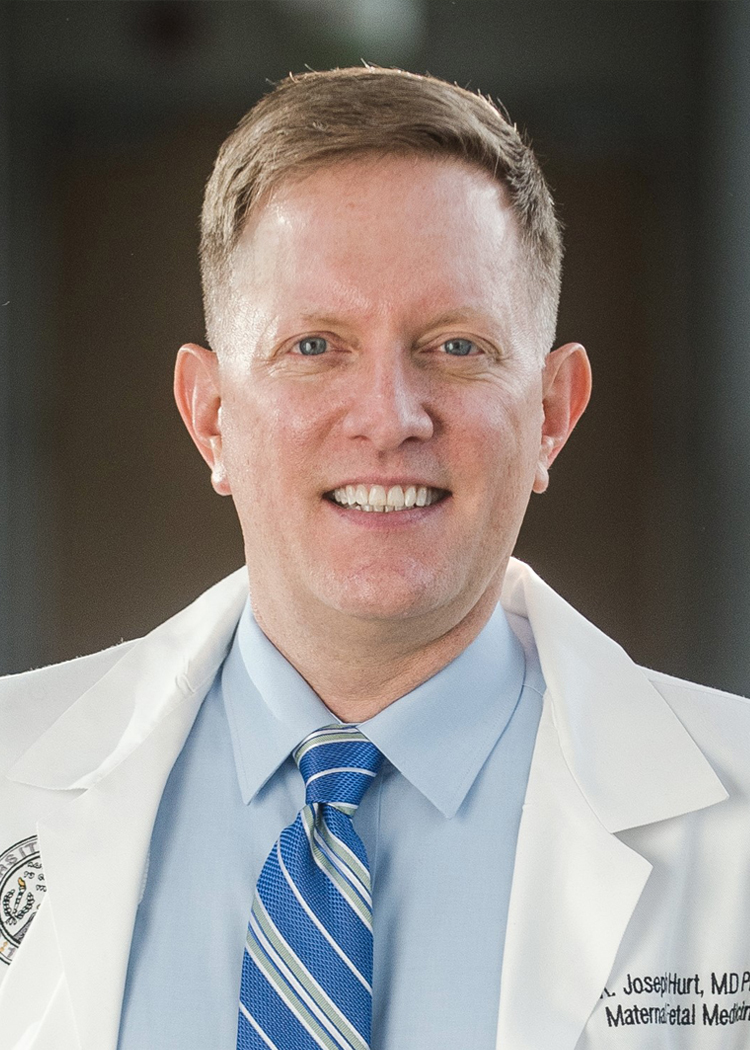
K. Joseph Hurt, MD, PhD
Associate Professor, Principal Investigator
K. Joseph Hurt, MD, PhD
Director, Preterm Labor Research Laboratory
Degrees/Training:
BA, Whitman College, Walla Walla, Washington
MD and PhD (Neuroscience), Johns Hopkins University School of Medicine
OB-GYN Residency, Johns Hopkins Hospital
Reproductive Physiology Postdoctoral Fellow (Uro-Neurology Research Laboratory), Johns Hopkins
MFM Fellowship, University of Colorado
Current Position: Physician-Scientist and Hurt Lab Principal Investigator (PI)
Autobiographical Sketch:
Joe is an Associate Professor of Obstetrics and Gynecology. He is a clinician-scientist OB-GYN and the PI for the translational/basic science Preterm Labor Research Laboratory. The research lab is in the Division of Reproductive Sciences, and his clinical practice and primary appointment is in the Division of Maternal Fetal Medicine. He sees ultrasound and high risk OB patients as part of the Colorado Institute for Maternal Fetal Health at locations including University Hospital, Children’s Hospital, St. Joseph’s Hospital, Parker and Platte River Perinatal Centers, and sometimes Littleton Perinatal Center and UCHealth Lone Tree. He is the editor of the popular Pocket Obstetrics and Gynecology manual. For clinical information, look here.
Our laboratory research examines the basic biology of labor (what controls parturition onset) and the role and signaling pathways of gasotransmitters (nitric oxide, hydrogen sulfide) in reproductive physiology. We are interested in finding and applying basic science discoveries to advance novel treatments for preterm birth to prevent the morbidity and mortality associated with prematurity. Teaching and mentoring are important to me outside of the clinic, and I spend my time engaged in all aspects of academic medicine with research, teaching, and patient care. We are always willing to talk with students, residents, fellows, and postdocs who are excited about reproductive biology and perinatology, or those with clinical perinatology interests as well.
Our laboratory is open for rotation/graduate student trainees in the Integrated Physiology Program, and the MD-PhD (MSTP) and Biomedical Sciences Program (BSP) umbrella programs, and for clinical or postdoctoral fellows as well. Medical students with an interest in OB-GYN and women’s health, or any of our research areas, are also welcome to contact us to explore either bench or clinical/translational projects, including mentoring for your Mentored Scholarly Activity.
K. Joseph Hurt, MD, PhD
Director, Preterm Labor Research Laboratory
Degrees/Training:
BA, Whitman College, Walla Walla, Washington
MD and PhD (Neuroscience), Johns Hopkins University School of Medicine
OB-GYN Residency, Johns Hopkins Hospital
Reproductive Physiology Postdoctoral Fellow (Uro-Neurology Research Laboratory), Johns Hopkins
MFM Fellowship, University of Colorado
Current Position: Physician-Scientist and Hurt Lab Principal Investigator (PI)
Autobiographical Sketch:
Joe is an Associate Professor of Obstetrics and Gynecology. He is a clinician-scientist OB-GYN and the PI for the translational/basic science Preterm Labor Research Laboratory. The research lab is in the Division of Reproductive Sciences, and his clinical practice and primary appointment is in the Division of Maternal Fetal Medicine. He sees ultrasound and high risk OB patients as part of the Colorado Institute for Maternal Fetal Health at locations including University Hospital, Children’s Hospital, St. Joseph’s Hospital, Parker and Platte River Perinatal Centers, and sometimes Littleton Perinatal Center and UCHealth Lone Tree. He is the editor of the popular Pocket Obstetrics and Gynecology manual. For clinical information, look here.
Our laboratory research examines the basic biology of labor (what controls parturition onset) and the role and signaling pathways of gasotransmitters (nitric oxide, hydrogen sulfide) in reproductive physiology. We are interested in finding and applying basic science discoveries to advance novel treatments for preterm birth to prevent the morbidity and mortality associated with prematurity. Teaching and mentoring are important to me outside of the clinic, and I spend my time engaged in all aspects of academic medicine with research, teaching, and patient care. We are always willing to talk with students, residents, fellows, and postdocs who are excited about reproductive biology and perinatology, or those with clinical perinatology interests as well.
Our laboratory is open for rotation/graduate student trainees in the Integrated Physiology Program, and the MD-PhD (MSTP) and Biomedical Sciences Program (BSP) umbrella programs, and for clinical or postdoctoral fellows as well. Medical students with an interest in OB-GYN and women’s health, or any of our research areas, are also welcome to contact us to explore either bench or clinical/translational projects, including mentoring for your Mentored Scholarly Activity.
Former Hurt Lab Members

Rachael Bok, BS
Professional Research Assistant
Rachael Bok, BS
Degrees/Training:
BS, Colorado State University
Current Position: Senior Professional Research Assistant, Lab Manager
Long term plan/goal: To be determined.
Something to know about the Hurt Lab: Parturition research does not operate on banker's hours!
Autobiographical Sketch:
My name is Rachael. I first met Dr. Hurt as a research associate in a pediatric lab group that I was working with looking at insufficiencies within the pulmonary vasculature of premature infants. I grew up in the Pacific Northwest, and was drawn to Colorado for college when I read the advertisement "over 300 days of sunshine per year!" While studying chemistry at Colorado State University, I discovered my passion for research in a physiology lab studying ion channels in cerebral blood vessels. My project(s) in the Hurt Lab have focused on the role of hydrogen sulfide (H2S) in pregnancy and parturition and have involved the development of several animal models (preterm vs. term labor, inflammatory vs. non-inflammatory, etc.) to be able to study H2S across gestation and in labor. I am a novice in reproductive research, but I am motivated by the fact that such essential processes (pregnancy/labor) are much more than just biology. I enjoy that our projects are a blend of both basic and translational research, and that no part of my previous training has gone to waste--molecular biology, cellular signaling, microscopy, physiology, genetics, we use it all...all the time!
Fun Facts: Away from the lab, I love to spend time with my husband and two sons, and be outside as much as I can with my camera in tote. Key interests at home are Spiderman, I'm really awesome at laundry, and I get my news of the world from the ESPN ticker.
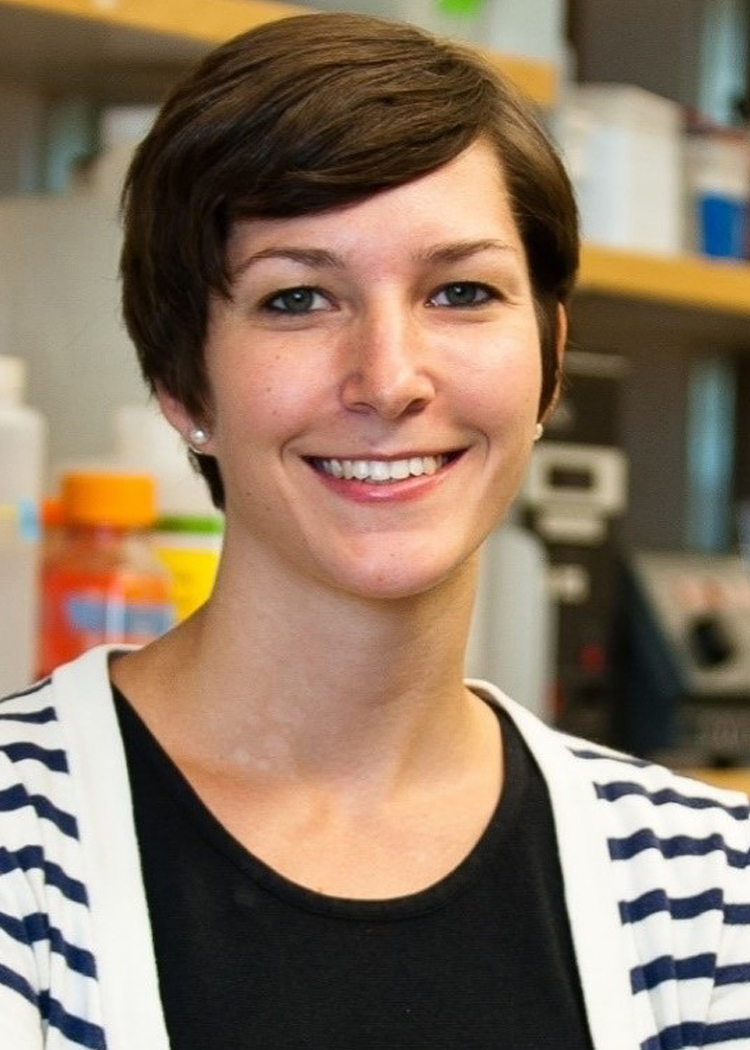
Kelsey Breen, MS
Kelsey Breen, MS
Current Position: Genetic Counselor at Memorial Sloan Kettering
Degrees/Training:
MS in Cell and Molecular Biology, University of Pennsylvania
MS in Genetic Counseling, Icahn School of Medicine at Mount Sinai
Lab Role: Professional Research Assistant
Something to know about the Hurt Lab: The Hurt lab is a motivating environment that fosters commitment, enthusiasm and productivity. Dr. Hurt is very grateful for hard work and thoughtful in how he expresses his appreciation.
Autobiographical Sketch:
I grew up in Saratoga Springs, NY and attended Syracuse University for undergraduate school, where I majored in biology. I pursued graduate training in a preterm labor research laboratory at the University of Pennsylvania. Following graduate school, I moved to Colorado and was hired in the Hurt lab, where I served roles as both administrator and technician. During this time, I was encouraged to explore creative research interests while provided the support and mentorship necessary to develop critical research skills and produce quality science. The expectation to maintain scientific integrity, the inspiring and productive team environment, and the dedication to the advancement of women’s health were the reasons that I joined the Hurt research team. I spent two years in the Hurt lab, after which I was provided the opportunity to pursue my interest in clinical care and obtained a Masters degree in Genetic Counseling from the Icahn School of Medicine at Mount Sinai. I now work at Memorial Sloan Kettering Cancer Center as a cancer genetic counselor, with an interest in gynecologic oncology.
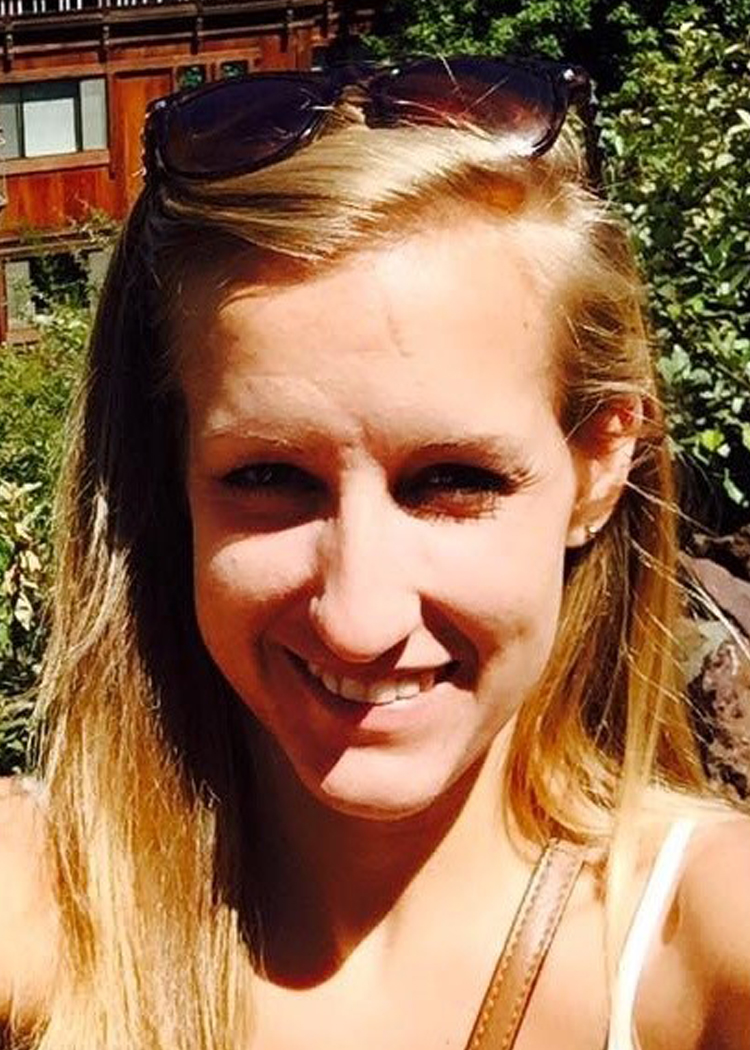
Sydney Coates
Sydney Coates
Current Position: Pre-Doctoral Student
Degrees/Training:
Undergraduate, Johns Hopkins University
PhD (in Progress) in Integrated Physiology/Reproductive Sciences Program, University of Colorado
Lab Role: PhD Rotation Student
Something to know about the Hurt Lab: The Hurt Lab is part of the Division of Basic Reproductive Sciences, an exciting and collaborative group to work with.
Autobiographical Sketch:
As a cross country runner and biology student at Johns Hopkins University, I developed a love for running and the scientific process. Ultimately, both led me to the University of Colorado to join an exciting research program in America’s fittest state. I joined the Integrated Physiology graduate program for opportunities in maternal and fetal physiology research. A significant portion of pregnancies face complications—including my own mother’s pregnancy with me and my twin sister—and I hope to contribute to understanding and therapies for these problems.
During my rotation in the Preterm Labor Lab, I explored hydrogen sulfide production in the fetal-placental unit as a possible novel mechanism triggering labor. I gained valuable research skills, especially in protein and metabolome analysis, to carry forward in graduate school. I am currently working on research for my PhD thesis in Dr. Lorna Moore’s lab, studying the physiology of high altitude pregnancy.

Sindi Diko, DO
Sindi Diko, DO
Current Position: Surgical Resident at St. Joe's Medical Center in NJ
Degrees/Training:
BS, University of Washington
DO, Rocky Vista University
Lab Role:
Long term plan/goal: Breast Cancer/reconstruction.
Something to know about the Hurt Lab: Never settle for anything less than the best you can do in research!
Autobiographical Sketch:
Hello! I'm Sindi. I grew up in the Seattle area and moved to Colorado for medical school. I knew I wanted to work in women's health and when I met Dr. Hurt at an ACOG event my first year of medical school, I was really excited at the opportunity to work alongside him for a quality improvement project. I had done a little research after undergrad but this was the first time I got to head a small project. I have learned so much about what goes on behind the scenes of order to publish a study such as grant writing, working alongside very busy coauthors, and the multiple revisions.
Fun Facts: In my spare time, I really enjoy the outdoors, DIY home projects, and trying new food!
Rachael Bok, BS
Degrees/Training:
BS, Colorado State University
Current Position: Senior Professional Research Assistant, Lab Manager
Long term plan/goal: To be determined.
Something to know about the Hurt Lab: Parturition research does not operate on banker's hours!
Autobiographical Sketch:
My name is Rachael. I first met Dr. Hurt as a research associate in a pediatric lab group that I was working with looking at insufficiencies within the pulmonary vasculature of premature infants. I grew up in the Pacific Northwest, and was drawn to Colorado for college when I read the advertisement "over 300 days of sunshine per year!" While studying chemistry at Colorado State University, I discovered my passion for research in a physiology lab studying ion channels in cerebral blood vessels. My project(s) in the Hurt Lab have focused on the role of hydrogen sulfide (H2S) in pregnancy and parturition and have involved the development of several animal models (preterm vs. term labor, inflammatory vs. non-inflammatory, etc.) to be able to study H2S across gestation and in labor. I am a novice in reproductive research, but I am motivated by the fact that such essential processes (pregnancy/labor) are much more than just biology. I enjoy that our projects are a blend of both basic and translational research, and that no part of my previous training has gone to waste--molecular biology, cellular signaling, microscopy, physiology, genetics, we use it all...all the time!
Fun Facts: Away from the lab, I love to spend time with my husband and two sons, and be outside as much as I can with my camera in tote. Key interests at home are Spiderman, I'm really awesome at laundry, and I get my news of the world from the ESPN ticker.
Kelsey Breen, MS
Current Position: Genetic Counselor at Memorial Sloan Kettering
Degrees/Training:
MS in Cell and Molecular Biology, University of Pennsylvania
MS in Genetic Counseling, Icahn School of Medicine at Mount Sinai
Lab Role: Professional Research Assistant
Something to know about the Hurt Lab: The Hurt lab is a motivating environment that fosters commitment, enthusiasm and productivity. Dr. Hurt is very grateful for hard work and thoughtful in how he expresses his appreciation.
Autobiographical Sketch:
I grew up in Saratoga Springs, NY and attended Syracuse University for undergraduate school, where I majored in biology. I pursued graduate training in a preterm labor research laboratory at the University of Pennsylvania. Following graduate school, I moved to Colorado and was hired in the Hurt lab, where I served roles as both administrator and technician. During this time, I was encouraged to explore creative research interests while provided the support and mentorship necessary to develop critical research skills and produce quality science. The expectation to maintain scientific integrity, the inspiring and productive team environment, and the dedication to the advancement of women’s health were the reasons that I joined the Hurt research team. I spent two years in the Hurt lab, after which I was provided the opportunity to pursue my interest in clinical care and obtained a Masters degree in Genetic Counseling from the Icahn School of Medicine at Mount Sinai. I now work at Memorial Sloan Kettering Cancer Center as a cancer genetic counselor, with an interest in gynecologic oncology.
Sydney Coates
Current Position: Pre-Doctoral Student
Degrees/Training:
Undergraduate, Johns Hopkins University
PhD (in Progress) in Integrated Physiology/Reproductive Sciences Program, University of Colorado
Lab Role: PhD Rotation Student
Something to know about the Hurt Lab: The Hurt Lab is part of the Division of Basic Reproductive Sciences, an exciting and collaborative group to work with.
Autobiographical Sketch:
As a cross country runner and biology student at Johns Hopkins University, I developed a love for running and the scientific process. Ultimately, both led me to the University of Colorado to join an exciting research program in America’s fittest state. I joined the Integrated Physiology graduate program for opportunities in maternal and fetal physiology research. A significant portion of pregnancies face complications—including my own mother’s pregnancy with me and my twin sister—and I hope to contribute to understanding and therapies for these problems.
During my rotation in the Preterm Labor Lab, I explored hydrogen sulfide production in the fetal-placental unit as a possible novel mechanism triggering labor. I gained valuable research skills, especially in protein and metabolome analysis, to carry forward in graduate school. I am currently working on research for my PhD thesis in Dr. Lorna Moore’s lab, studying the physiology of high altitude pregnancy.
Sindi Diko, DO
Current Position: Surgical Resident at St. Joe's Medical Center in NJ
Degrees/Training:
BS, University of Washington
DO, Rocky Vista University
Lab Role:
Long term plan/goal: Breast Cancer/reconstruction.
Something to know about the Hurt Lab: Never settle for anything less than the best you can do in research!
Autobiographical Sketch:
Hello! I'm Sindi. I grew up in the Seattle area and moved to Colorado for medical school. I knew I wanted to work in women's health and when I met Dr. Hurt at an ACOG event my first year of medical school, I was really excited at the opportunity to work alongside him for a quality improvement project. I had done a little research after undergrad but this was the first time I got to head a small project. I have learned so much about what goes on behind the scenes of order to publish a study such as grant writing, working alongside very busy coauthors, and the multiple revisions.
Fun Facts: In my spare time, I really enjoy the outdoors, DIY home projects, and trying new food!

Manny Doblado, MD, MA
Manny Doblado, MD, MA
Current Position: Fellow in Reproductive Endocrinology and Infertility, University of California, San Diego
Degrees/Training:
Undergraduate, Washington University in St. Louis
MA/MD, Washington University in St. Louis
Lab Role: OB-GYN Resident Researcher
Long term plan/goal: Considering practice options and research opportunities.
Something to know about the Hurt Lab: I’m still not sure if Dr. Hurt sleeps.
Autobiographical Sketch:
My name is Manuel Doblado, I’m currently a second year fellow in Reproductive Endocrinology and Infertility at UC-San Diego. I grew up in Houston, Texas and did my undergraduate work and medical school at Washington University in St. Louis. I came to the University of Colorado for my residency training in Ob/Gyn and found Dr. Hurt while looking for a mentor with whom I could do a resident research project. During my research time, Dr. Hurt and I were able to create a ‘homebrew’ assay for urinary nitric oxide to look at nitric oxide metabolite levels throughout the menstrual cycle. With Dr. Hurt’s help, I was able to get our assay working and we ran several hundred samples in just 6 weeks during my OB-GYN residency research block. I presented that work at the Society for Reproductive Sciences meeting. Our project helped me decide to pursue a fellowship in Reproductive Endocrinology and sparked my interest in better understanding the process and regulation of ovulation.
Fun Facts: During my spare time, I enjoy running, biking, and traveling.
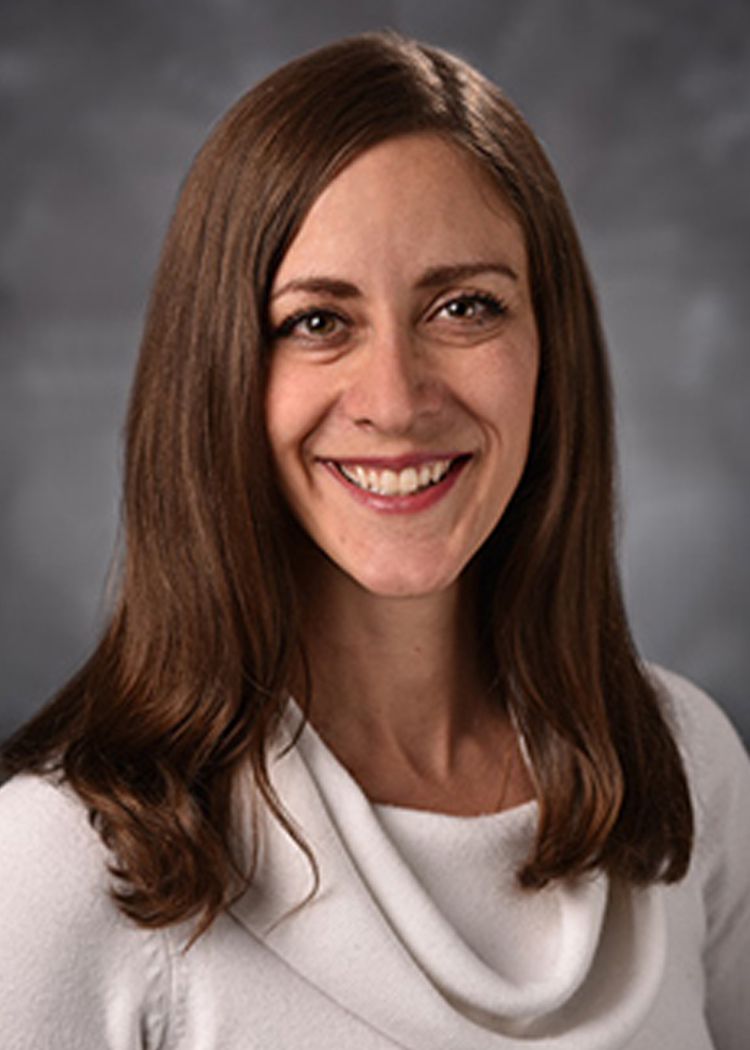
Mira Estin, MD, PhD
Mira Estin, MD, PhD
Current Position: Resident Physician in Obstetrics & Gynecology at Duke University
Degrees/Training:
BA in Comparative Literature, University of Pennsylvania
PhD in Immunology, University of Colorado (2016)
MD, University of Colorado (2018)
Lab Role:
Long term plan/goal: Academic Physician/Scientist in Obstetrics and Gynecology.
Autobiographical Sketch:
I grew up in Colorado and Iowa, and returned to Denver to join the Medical Scientist Training Program at the University of Colorado. I completed my PhD in the lab of Jordan Jacobelli at National Jewish Health, where I studied the role of the actin-myosin cytoskeleton in T cell migration. My work demonstrated that EVL and VASP, two linear actin effector proteins, play a role in activated (but not naïve) T cells. Specifically, I showed that EVL and VASP mediate the diapedesis step of extravasation in an alpha-4 integrin-dependent manner; however, they are not required for alpha-4 integrin-mediated T cell adhesion. Taken together, this work suggests a novel role for alpha-4 integrins in the cooperative process by which T cells traverse the vascular endothelium, and suggests that it may be possible to generate immunotherapeutics that more specifically target activated T cell migration. Upon competing my MD in 2018, I went on to train in Obstetrics and Gynecology at Duke University. My goal for the future is to investigate the role of the immune system during pregnancy, including mechanisms of materno-fetal tolerance, host defense against infectious diseases, and immunologic mediators of pre-eclampsia.
Fun Facts: When I’m not at the hospital or in the lab, I enjoy hiking with my dog Shadow, or curling up with a good book.
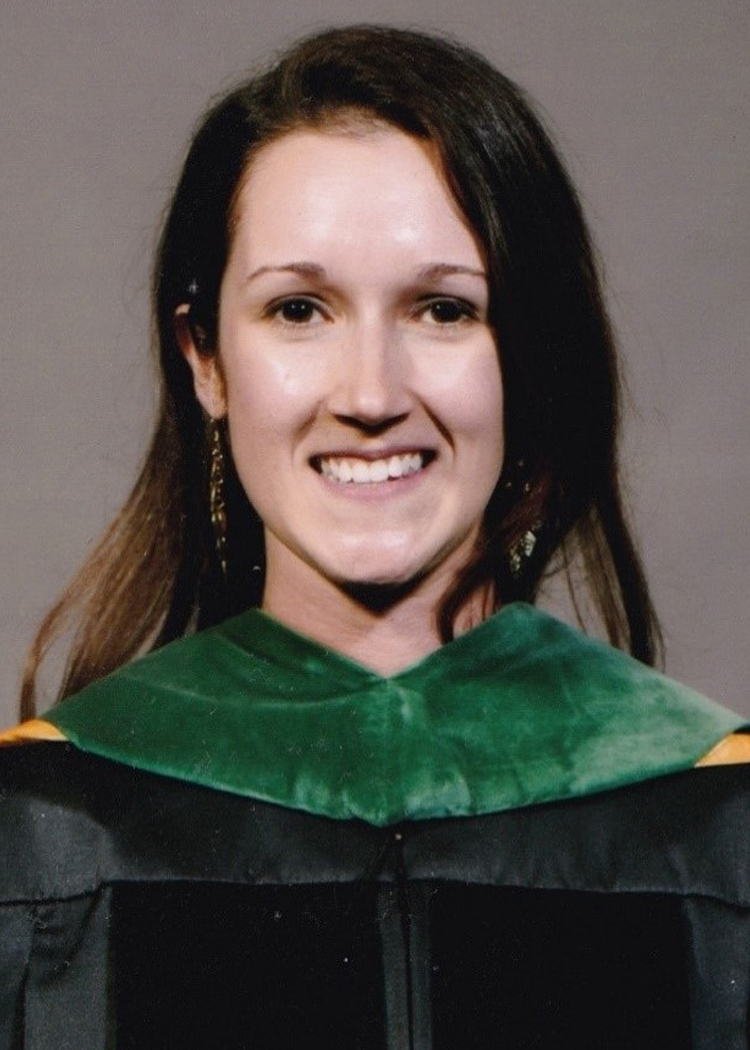
Racheal Gilmer, MD
Racheal Gilmer, MD
Current Position: Emergency Medicine Resident
Degrees/Training:
Undergraduate, University of Colorado Denver
MD, University of Colorado
Lab Role: Mentored Scholarly Project Research for Medical School
Long term plan/goal: Physician in Emergency Medicine.
Something to know about the Hurt Lab: I learned how to work in as a team in collaboration. I also learned how important a clear plan, goal, and template for data collection is from day one!
Autobiographical Sketch:
My name is Racheal Gilmer. I am currently a resident at the University of Chicago Emergency Medicine Residency Program. I came to work for the Hurt lab in my third and fourth year of medical school, where I participated in a quality improvement project on perineal lacerations in vaginal deliveries. I began working in quality improvement through an elective offered through my medical school at the University of Colorado, and was connected with Dr. Hurt through a medical education initiative. The initiative was funded in order to connect advanced physicians with medical students to encourage interactive learning and teaching in a clinical and research setting. While working on this project I learned how to perform chart abstraction, data consolidation, and data analysis. I also had the opportunity to report findings at several local and national conferences including the National Forum on Quality Improvement in Healthcare. I have strong interests in Quality Improvement and Administrative Medicine. One day, I hope to get my MBA and save an Emergency Department out there some money! My hobbies include any outdoor activity, teaching my ‘old dog’ new tricks, and drinking lots of coffee.
Fun Facts: My hobbies include any outdoor activity, teaching my ‘old dog’ new tricks, and drinking lots of coffee.

Damian Guerra, PhD
Damian Guerra, PhD
Degrees/Training:
BS in Biochemistry, Washington State University (2007)
PhD in Biochemistry and Molecular Biology, University of California, Davis (2013)
Current Position: Postdoc
Long term plan/goal: Tenure-track academic position.
Something to know about the Hurt Lab: 9 times out of 10, dispense with the passive voice!
Autobiographical Sketch:
I grew up in northern Idaho, where placid forests meet Palousean hills. My mother was an artist, musician -- the Rain. My father is a scientist, philosopher -- Stone. Just as rain drives the minerals of stone into the biosphere, the irrigation of my rational soul instilled a curiosity that moved like fire from Augustus to Augustine, from flowers to flavonoids. Eventually I found myself baptized in the electron-pushing waters of organic chemical reaction mechanisms, the curved arrow anastomoses that nourish and sustain the field of biology. Thus did I find my calling in biochemistry. For my PhD project, I characterized a ubiquitin-mediated regulatory pathway of amino acid export in plants. There are more ubiquitin ligase genes than US representatives, but lose just one of them and intercellular amino acid transport nearly ceases! I then spent three years studying the highly-conserved enzyme S-nitrosoglutathione reductase, or GSNOR. GSNOR is an abundant enzyme known to curtail nitric oxide (NO) bioavailability, and I discovered a mechanism by which NO reversibly curtails GSNOR activity. Might this explain how NO signaling can occur in the presence of GSNOR?
I longed to diversify my skills and expand the applicability of my efforts to human health and disease. This movement was both practical and personal. Humans, animals, and cell lines are robust models to demonstrate or falsify the physiological importance of a particular biochemical pathway. Just as importantly, obstetrical complications have personally affected my family. To both sate curiosity and address a moral imperative, I joined Dr. Hurt’s lab in August of 2016. I am fascinated by all aspects of gasotransmitter biochemistry, but particularly as it relates to smooth muscle contractility and placentation.
Fun Facts: When I am not studying the mechanisms of preterm labor and gastroparesis, you will find me with my wonderful wife Brandy and our miraculous boy Colfax. I also enjoy hiking, weight-lifting, cooking, writing poetry, and the occasional margarita.
Manny Doblado, MD, MA
Current Position: Fellow in Reproductive Endocrinology and Infertility, University of California, San Diego
Degrees/Training:
Undergraduate, Washington University in St. Louis
MA/MD, Washington University in St. Louis
Lab Role: OB-GYN Resident Researcher
Long term plan/goal: Considering practice options and research opportunities.
Something to know about the Hurt Lab: I’m still not sure if Dr. Hurt sleeps.
Autobiographical Sketch:
My name is Manuel Doblado, I’m currently a second year fellow in Reproductive Endocrinology and Infertility at UC-San Diego. I grew up in Houston, Texas and did my undergraduate work and medical school at Washington University in St. Louis. I came to the University of Colorado for my residency training in Ob/Gyn and found Dr. Hurt while looking for a mentor with whom I could do a resident research project. During my research time, Dr. Hurt and I were able to create a ‘homebrew’ assay for urinary nitric oxide to look at nitric oxide metabolite levels throughout the menstrual cycle. With Dr. Hurt’s help, I was able to get our assay working and we ran several hundred samples in just 6 weeks during my OB-GYN residency research block. I presented that work at the Society for Reproductive Sciences meeting. Our project helped me decide to pursue a fellowship in Reproductive Endocrinology and sparked my interest in better understanding the process and regulation of ovulation.
Fun Facts: During my spare time, I enjoy running, biking, and traveling.
Mira Estin, MD, PhD
Current Position: Resident Physician in Obstetrics & Gynecology at Duke University
Degrees/Training:
BA in Comparative Literature, University of Pennsylvania
PhD in Immunology, University of Colorado (2016)
MD, University of Colorado (2018)
Lab Role:
Long term plan/goal: Academic Physician/Scientist in Obstetrics and Gynecology.
Autobiographical Sketch:
I grew up in Colorado and Iowa, and returned to Denver to join the Medical Scientist Training Program at the University of Colorado. I completed my PhD in the lab of Jordan Jacobelli at National Jewish Health, where I studied the role of the actin-myosin cytoskeleton in T cell migration. My work demonstrated that EVL and VASP, two linear actin effector proteins, play a role in activated (but not naïve) T cells. Specifically, I showed that EVL and VASP mediate the diapedesis step of extravasation in an alpha-4 integrin-dependent manner; however, they are not required for alpha-4 integrin-mediated T cell adhesion. Taken together, this work suggests a novel role for alpha-4 integrins in the cooperative process by which T cells traverse the vascular endothelium, and suggests that it may be possible to generate immunotherapeutics that more specifically target activated T cell migration. Upon competing my MD in 2018, I went on to train in Obstetrics and Gynecology at Duke University. My goal for the future is to investigate the role of the immune system during pregnancy, including mechanisms of materno-fetal tolerance, host defense against infectious diseases, and immunologic mediators of pre-eclampsia.
Fun Facts: When I’m not at the hospital or in the lab, I enjoy hiking with my dog Shadow, or curling up with a good book.
Racheal Gilmer, MD
Current Position: Emergency Medicine Resident
Degrees/Training:
Undergraduate, University of Colorado Denver
MD, University of Colorado
Lab Role: Mentored Scholarly Project Research for Medical School
Long term plan/goal: Physician in Emergency Medicine.
Something to know about the Hurt Lab: I learned how to work in as a team in collaboration. I also learned how important a clear plan, goal, and template for data collection is from day one!
Autobiographical Sketch:
My name is Racheal Gilmer. I am currently a resident at the University of Chicago Emergency Medicine Residency Program. I came to work for the Hurt lab in my third and fourth year of medical school, where I participated in a quality improvement project on perineal lacerations in vaginal deliveries. I began working in quality improvement through an elective offered through my medical school at the University of Colorado, and was connected with Dr. Hurt through a medical education initiative. The initiative was funded in order to connect advanced physicians with medical students to encourage interactive learning and teaching in a clinical and research setting. While working on this project I learned how to perform chart abstraction, data consolidation, and data analysis. I also had the opportunity to report findings at several local and national conferences including the National Forum on Quality Improvement in Healthcare. I have strong interests in Quality Improvement and Administrative Medicine. One day, I hope to get my MBA and save an Emergency Department out there some money! My hobbies include any outdoor activity, teaching my ‘old dog’ new tricks, and drinking lots of coffee.
Fun Facts: My hobbies include any outdoor activity, teaching my ‘old dog’ new tricks, and drinking lots of coffee.
Damian Guerra, PhD
Degrees/Training:
BS in Biochemistry, Washington State University (2007)
PhD in Biochemistry and Molecular Biology, University of California, Davis (2013)
Current Position: Postdoc
Long term plan/goal: Tenure-track academic position.
Something to know about the Hurt Lab: 9 times out of 10, dispense with the passive voice!
Autobiographical Sketch:
I grew up in northern Idaho, where placid forests meet Palousean hills. My mother was an artist, musician -- the Rain. My father is a scientist, philosopher -- Stone. Just as rain drives the minerals of stone into the biosphere, the irrigation of my rational soul instilled a curiosity that moved like fire from Augustus to Augustine, from flowers to flavonoids. Eventually I found myself baptized in the electron-pushing waters of organic chemical reaction mechanisms, the curved arrow anastomoses that nourish and sustain the field of biology. Thus did I find my calling in biochemistry. For my PhD project, I characterized a ubiquitin-mediated regulatory pathway of amino acid export in plants. There are more ubiquitin ligase genes than US representatives, but lose just one of them and intercellular amino acid transport nearly ceases! I then spent three years studying the highly-conserved enzyme S-nitrosoglutathione reductase, or GSNOR. GSNOR is an abundant enzyme known to curtail nitric oxide (NO) bioavailability, and I discovered a mechanism by which NO reversibly curtails GSNOR activity. Might this explain how NO signaling can occur in the presence of GSNOR?
I longed to diversify my skills and expand the applicability of my efforts to human health and disease. This movement was both practical and personal. Humans, animals, and cell lines are robust models to demonstrate or falsify the physiological importance of a particular biochemical pathway. Just as importantly, obstetrical complications have personally affected my family. To both sate curiosity and address a moral imperative, I joined Dr. Hurt’s lab in August of 2016. I am fascinated by all aspects of gasotransmitter biochemistry, but particularly as it relates to smooth muscle contractility and placentation.
Fun Facts: When I am not studying the mechanisms of preterm labor and gastroparesis, you will find me with my wonderful wife Brandy and our miraculous boy Colfax. I also enjoy hiking, weight-lifting, cooking, writing poetry, and the occasional margarita.
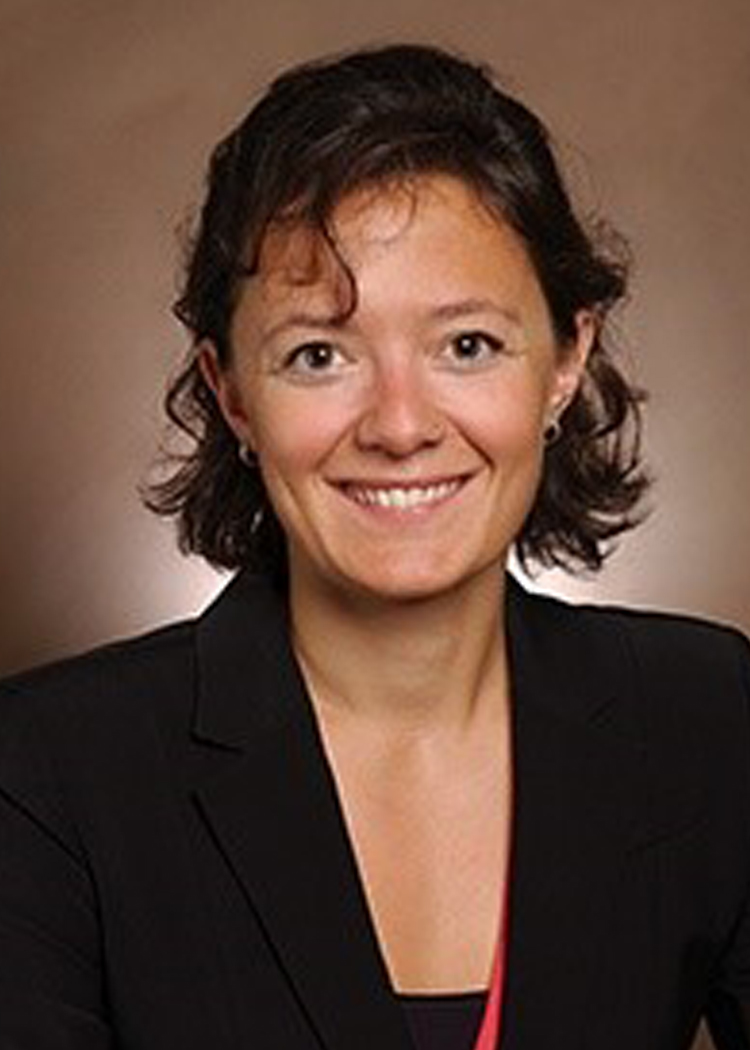
Jenny Labudde, MD
Jenny Labudde, MD
Current Position: OB-GYN Resident at Maine Medical Center, in Portland, ME
Degrees/Training:
Undergraduate, Colorado College, in Colorado Springs
MD, University of Colorado
Trained as a Wilderness First Responder
Lab Role: Mentored Scholarly Project Research for Medical School
Long term plan/goal: OB-GYN
Something to know about the Hurt Lab: The value of a thorough editing process!
Autobiographical Sketch:
Jenny grew up in Cooperstown NY and came to to Colorado for college, where she received a bachelor's degree in Feminist and Gender Studies from Colorado College. She completed her MD at the University of Colorado. Before college Jenny worked as an Outward Bound instructor, teaching multi-week wilderness courses for teenagers. In medical school, she joined the Hurt Lab to work on a project in the field of medical education. Specifically, Jenny joined a project started by Dr. Hurt and another student aimed at developing a communications training program for medical students in difficult obstetric clinical situations. Jenny decided to go into OB-GYN and is passionate about Women’s Health as a resident at Maine Medical Center.
Fun Facts: Her other interests include bike commuting and brewing beer.

Janae Luellen
Janae Luellen
Current Position: Undergraduate Student/Summer Research Assistant
Degrees/Training:
Undergraduate, University of Colorado Boulder
Lab Role: Undergraduate Summer Investiagator
Long term plan/goal: I hope to pursue a career in medicine or clinical research after my undergraduate degree, or potentially graduate school.
Something to know about the Hurt Lab: Scientists are the most optimistic pessimists I have ever had the pleasure of knowing.
Autobiographical Sketch:
I am currently an undergraduate student at the University of Colorado Boulder and will be graduating in May of 2018 with a BS in chemical and biological engineering. I was born and raised in Colorado and have stayed close to home to enjoy my education as well as the mountains. As a student at CU, I have developed a passion for medicine and aspire to enter the medical research field after I finish my undergraduate degree. I am thankful to have found a place in Dr. Hurt’s lab through a summer research fellows program. My research experience was limited before entering the lab, but I learned quickly under the skilled guidance in Dr. Hurt’s lab, and I am grateful for the knowledge and skills I have developed in my time here. Witnessing the passion and excitement that the Hurt Lab exhibited towards clinical research, particularly in women’s health research, influenced me to look farther into this field and reinforced my decision to pursue a career in medicine after graduation.
Fun Facts: When I am not working in the lab, studying as a student, or working in a local vet clinic, I am usually enjoying the outdoors or backpacking.
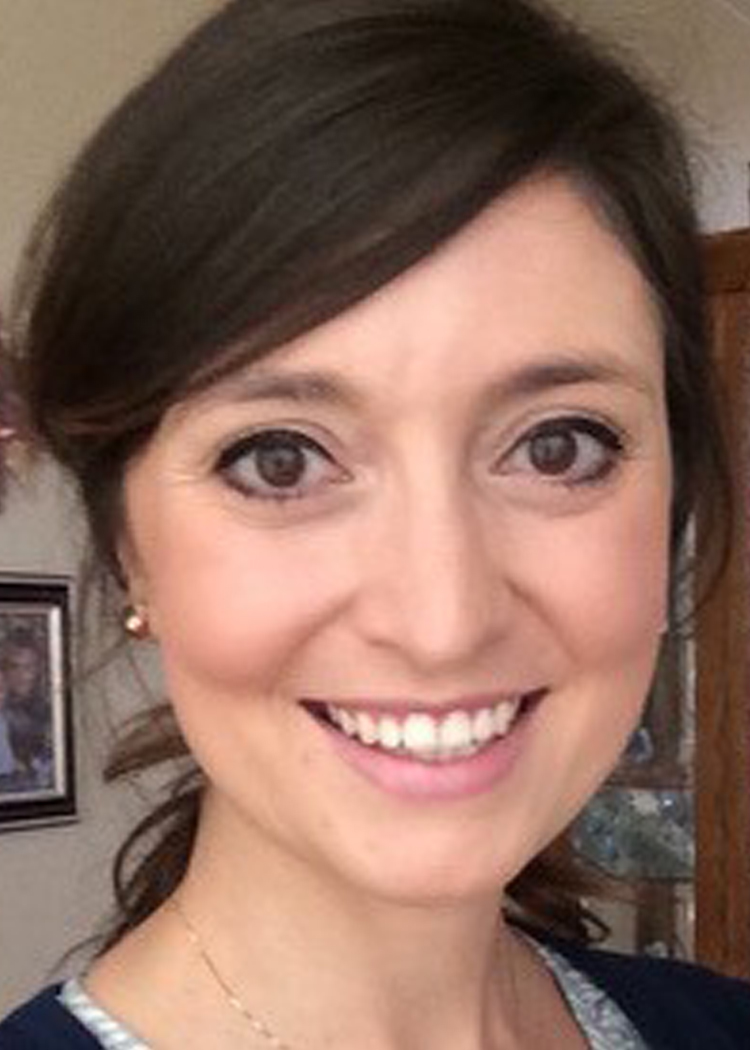
Noel Rodriguez, MD
Noel Rodriguez, MD
Current Position: Resident Physician in OB-GYN, University of Texas Southwestern
Degrees/Training:
Undergraduate, University of New Mexico, Albuquerque, NM
MD, University of Colorado (2015)
Residency (in Progress), University of Texas Southwestern, Obstetrics and Gynecology Residency Program
Lab Role: Mentored Scholarly Project Research for Medical School
Long term plan/goal: Complete my residency program at Parkland Memorial Hospital and continue to ponder the possibility of fellowship.
Something to know about the Hurt Lab: It would be difficult to name one! Be timely, efficient, enthusiastic, meticulous in your efforts and seek any and all venues to share your work.
Autobiographical Sketch:
My name is Noel. I’m originally from Truchas, New Mexico (a small town on the highroad to Taos) and completed my undergraduate degree in Psychology at the University of New Mexico in Albuquerque. From there, I spent two years working as a research assistant at the National Institutes of Mental Health in the Pediatric Developmental Neuroscience Branch in Bethesda, MD. I had the great fortune of joining the Hurt Lab during my first year of medical school at the University of Colorado School of Medicine. Dr. Hurt served as my mentor on the Preterm Birth Communication Project, a collaborative effort with the March of Dimes Colorado Chapter bringing preterm birth families together with medical students to engage in a mutually beneficial educational experience aimed at improving the medical communication abilities of our future physicians. The project sparked an interest in medical education research and reinforced my passion for the reproductive sciences. After four amazing years working with Dr. Hurt, I was accepted into the University of Texas Southwestern Obstetrics and Gynecology residency program in Dallas, Texas where I continue to learn and grow in my passion for providing quality women’s healthcare.
Jenny Labudde, MD
Current Position: OB-GYN Resident at Maine Medical Center, in Portland, ME
Degrees/Training:
Undergraduate, Colorado College, in Colorado Springs
MD, University of Colorado
Trained as a Wilderness First Responder
Lab Role: Mentored Scholarly Project Research for Medical School
Long term plan/goal: OB-GYN
Something to know about the Hurt Lab: The value of a thorough editing process!
Autobiographical Sketch:
Jenny grew up in Cooperstown NY and came to to Colorado for college, where she received a bachelor's degree in Feminist and Gender Studies from Colorado College. She completed her MD at the University of Colorado. Before college Jenny worked as an Outward Bound instructor, teaching multi-week wilderness courses for teenagers. In medical school, she joined the Hurt Lab to work on a project in the field of medical education. Specifically, Jenny joined a project started by Dr. Hurt and another student aimed at developing a communications training program for medical students in difficult obstetric clinical situations. Jenny decided to go into OB-GYN and is passionate about Women’s Health as a resident at Maine Medical Center.
Fun Facts: Her other interests include bike commuting and brewing beer.
Janae Luellen
Current Position: Undergraduate Student/Summer Research Assistant
Degrees/Training:
Undergraduate, University of Colorado Boulder
Lab Role: Undergraduate Summer Investiagator
Long term plan/goal: I hope to pursue a career in medicine or clinical research after my undergraduate degree, or potentially graduate school.
Something to know about the Hurt Lab: Scientists are the most optimistic pessimists I have ever had the pleasure of knowing.
Autobiographical Sketch:
I am currently an undergraduate student at the University of Colorado Boulder and will be graduating in May of 2018 with a BS in chemical and biological engineering. I was born and raised in Colorado and have stayed close to home to enjoy my education as well as the mountains. As a student at CU, I have developed a passion for medicine and aspire to enter the medical research field after I finish my undergraduate degree. I am thankful to have found a place in Dr. Hurt’s lab through a summer research fellows program. My research experience was limited before entering the lab, but I learned quickly under the skilled guidance in Dr. Hurt’s lab, and I am grateful for the knowledge and skills I have developed in my time here. Witnessing the passion and excitement that the Hurt Lab exhibited towards clinical research, particularly in women’s health research, influenced me to look farther into this field and reinforced my decision to pursue a career in medicine after graduation.
Fun Facts: When I am not working in the lab, studying as a student, or working in a local vet clinic, I am usually enjoying the outdoors or backpacking.
Noel Rodriguez, MD
Current Position: Resident Physician in OB-GYN, University of Texas Southwestern
Degrees/Training:
Undergraduate, University of New Mexico, Albuquerque, NM
MD, University of Colorado (2015)
Residency (in Progress), University of Texas Southwestern, Obstetrics and Gynecology Residency Program
Lab Role: Mentored Scholarly Project Research for Medical School
Long term plan/goal: Complete my residency program at Parkland Memorial Hospital and continue to ponder the possibility of fellowship.
Something to know about the Hurt Lab: It would be difficult to name one! Be timely, efficient, enthusiastic, meticulous in your efforts and seek any and all venues to share your work.
Autobiographical Sketch:
My name is Noel. I’m originally from Truchas, New Mexico (a small town on the highroad to Taos) and completed my undergraduate degree in Psychology at the University of New Mexico in Albuquerque. From there, I spent two years working as a research assistant at the National Institutes of Mental Health in the Pediatric Developmental Neuroscience Branch in Bethesda, MD. I had the great fortune of joining the Hurt Lab during my first year of medical school at the University of Colorado School of Medicine. Dr. Hurt served as my mentor on the Preterm Birth Communication Project, a collaborative effort with the March of Dimes Colorado Chapter bringing preterm birth families together with medical students to engage in a mutually beneficial educational experience aimed at improving the medical communication abilities of our future physicians. The project sparked an interest in medical education research and reinforced my passion for the reproductive sciences. After four amazing years working with Dr. Hurt, I was accepted into the University of Texas Southwestern Obstetrics and Gynecology residency program in Dallas, Texas where I continue to learn and grow in my passion for providing quality women’s healthcare.

Vibhuti Vyas, MS
Vibhuti Vyas, MS
Current Position: Research Technician at City of Hope Cancer Center, Duarte, CA
Degrees/Training:
BPharm, Rajiv Gandhi University of Health Sciences, India
MS in Pharmacology, St. John’s University, NY
Lab Role: Professional Research Assistant
Long term plan/goal: I would like to work as a research team leader (scientist) in an academic or industrial research setting.
Something to know about the Hurt Lab: Good work is always appreciated.
Autobiographical Sketch:
My name is Vibhuti. I am from India where I did my BS in Pharmacy from Rajiv Gandhi University of Health Sciences, Bangalore. To pursue my interest in pharmacology, I came to the United States in 2010 and completed my MS in Pharmacology from St. John’s University, NY. My interest in reproductive sciences and women’s health research sparked while doing my thesis project under the guidance of Dr. Sandra Reznik. An opportunity to work in Dr. Joe Hurt’s lab was perfect to strengthen my skills and fulfill my desire to contribute to this field. Finding a target for the prevention of preterm birth is one of the biggest challenges we are facing today. My role as a research assistant is to map out the mechanism of action of gasotransmitters such as hydrogen sulfide which relax uterine smooth muscle. To work as a team along with being self-sufficient are some of the basic values I have gained in the Hurt lab.
Fun Facts: In my spare time I like to cook, read and travel new places.
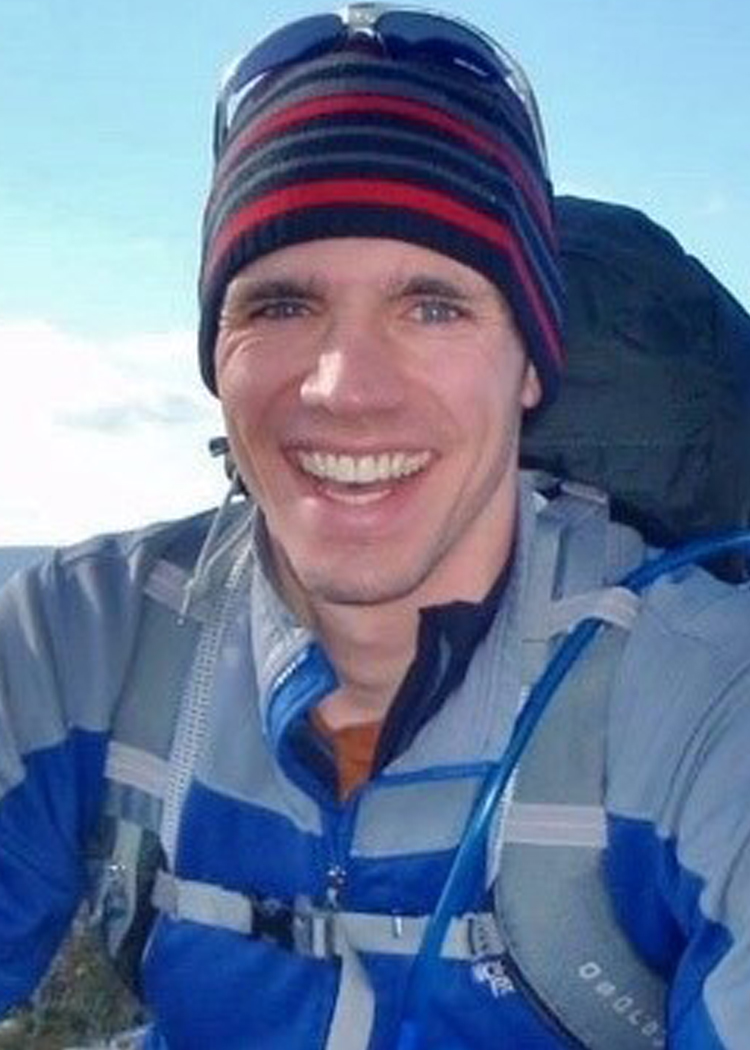
Brian Wakefield, MD
Brian Wakefield, MD
Current Position: OB-GYN Resident at University of Washington
Degrees/Training:
Undergraduate, Whitman College
MD, University of Virginia School of Medicine (2017)
Lab Role: Professional Research Assistant
Long term plan/goal: I hope to pursue a career in academic medicine.
Something to know about the Hurt Lab: Respect the uterus!
Autobiographical Sketch:
My name is Brian. I finished my MD at the University of Virginia School of Medicine in 2017, and am now a resident in Seattle. I am from the small town of Philomath, OR and came to the Hurt lab after completing my BA in Biology at Whitman College. I was originally drawn to Colorado as a great place to spend two years off before medical school and was lucky to get in touch with Dr. Hurt through Whitman College alumni connections. My previous research experience was from my honors thesis in cancer pharmacology at the Fred Hutchinson Cancer Research Center, and I was excited to build on my laboratory skills before going into the medical school application process. Through exposure to clinical medicine and translational research, my experience working in the Hurt lab helped to solidify my interest in pursuing a career in medicine and also sparked an interest in the reproductive sciences. Throughout medical school I drew on the skills and knowledge I gained working with Dr. Hurt and our colleagues in the Division of Reproductive Sciences. During medical school, I also wrote two clinical case reports with Dr. Hurt, and learned a lot from the writing, editing, and publishing process.
Fun Facts: In what spare time I have, I am an avid triathlete, baker of cakes, and enjoyer of the outdoors.
Vibhuti Vyas, MS
Current Position: Research Technician at City of Hope Cancer Center, Duarte, CA
Degrees/Training:
BPharm, Rajiv Gandhi University of Health Sciences, India
MS in Pharmacology, St. John’s University, NY
Lab Role: Professional Research Assistant
Long term plan/goal: I would like to work as a research team leader (scientist) in an academic or industrial research setting.
Something to know about the Hurt Lab: Good work is always appreciated.
Autobiographical Sketch:
My name is Vibhuti. I am from India where I did my BS in Pharmacy from Rajiv Gandhi University of Health Sciences, Bangalore. To pursue my interest in pharmacology, I came to the United States in 2010 and completed my MS in Pharmacology from St. John’s University, NY. My interest in reproductive sciences and women’s health research sparked while doing my thesis project under the guidance of Dr. Sandra Reznik. An opportunity to work in Dr. Joe Hurt’s lab was perfect to strengthen my skills and fulfill my desire to contribute to this field. Finding a target for the prevention of preterm birth is one of the biggest challenges we are facing today. My role as a research assistant is to map out the mechanism of action of gasotransmitters such as hydrogen sulfide which relax uterine smooth muscle. To work as a team along with being self-sufficient are some of the basic values I have gained in the Hurt lab.
Fun Facts: In my spare time I like to cook, read and travel new places.
Brian Wakefield, MD
Current Position: OB-GYN Resident at University of Washington
Degrees/Training:
Undergraduate, Whitman College
MD, University of Virginia School of Medicine (2017)
Lab Role: Professional Research Assistant
Long term plan/goal: I hope to pursue a career in academic medicine.
Something to know about the Hurt Lab: Respect the uterus!
Autobiographical Sketch:
My name is Brian. I finished my MD at the University of Virginia School of Medicine in 2017, and am now a resident in Seattle. I am from the small town of Philomath, OR and came to the Hurt lab after completing my BA in Biology at Whitman College. I was originally drawn to Colorado as a great place to spend two years off before medical school and was lucky to get in touch with Dr. Hurt through Whitman College alumni connections. My previous research experience was from my honors thesis in cancer pharmacology at the Fred Hutchinson Cancer Research Center, and I was excited to build on my laboratory skills before going into the medical school application process. Through exposure to clinical medicine and translational research, my experience working in the Hurt lab helped to solidify my interest in pursuing a career in medicine and also sparked an interest in the reproductive sciences. Throughout medical school I drew on the skills and knowledge I gained working with Dr. Hurt and our colleagues in the Division of Reproductive Sciences. During medical school, I also wrote two clinical case reports with Dr. Hurt, and learned a lot from the writing, editing, and publishing process.
Fun Facts: In what spare time I have, I am an avid triathlete, baker of cakes, and enjoyer of the outdoors.
August 2018 – Congrats to Damian for his First Place oral presentation award for UCDenver Postdoc Research Day
July 2018 – Congrats to Joe for the Outstanding Reviewer Award from the editors of Biology of Reproduction
May 2018 – Congratulations to Sindi Diko, DO on her graduation from Rocky Vista University College of Osteopathic Medicine!
May 2018 – Congratulations to Mira Estin, MD PhD on her graduation from UCDenver School of Medicine!
March 2018 – Congrats to Damian, Rachael, and Vibhuti on their poster presentation at the annual Society for Reproductive Medicine meeting in San Diego.
March 2018 – Congratulations to Mira Estin on her fantastic OB-Gyn Match to Duke School of Medicine!
February 2018 – Congrats Brian Wakefield, MD on your cancer in pregnancy manuscript acceptance to Gynecologic and Obstetric Investigation!
February 2018 – Congrats Mira Estin on your successful CTRC Microgrant award for your project titled “Assessment of NAAT for GBS Status after initiation of intrapartum antibiotics.”
January 2018 – Congrats Nicole Carlson, CNM PhD on your publication on provider type and mode of delivery accepted to the journal Birth: Issues in Perinatal Care!
December 2017 – Congratulations Damian on your Society for Redox Biology in Medicine Young Investigator Award!
October 2017 – Congrats Damian on your abstract selection for the Society for Redox Biology in Medicine meeting in Baltimore next month!
October 2017 – Congrats Damian for winning a best poster award at the Dept OB-GYN Research Retreat!
October 2017 – Congrats Vibhuti on your abstract selection for an oral presentation at the Department of OB-GYN Research Retreat!
September 2017 – Our lab was awarded a Ferring Research Innovation Award for 2018 for our project on metabolic factors regulating parturition timing. Go team!
September 2017 – Congrats Damian for a Postdoc Association Travel Award for his work on nNOS phosphorylation in NANC enteric neurotransmission!
August 2017 – Congratulations, Jenae, for your excellent end-of-summer Research Intern Conference presentation!
July 2017 – Joe and UCD OB-GYN hosted the annual AAOGF Scholars Retreat for scholars and distinguished faculty from around the country.
July 2017 – Congrats to Brian and good luck as he starts his OB-GYN Residency at the University of Washington!
May 2017 – Welcome CU Boulder undergrad Janae Luellen to the Hurt Lab as a Summer Research Fellow.
May 2017 – Congrats to Damian on starting his Neonatology Research T32 training grant!
April 2017 - Congrats to Rachael and Vibhuti for posters at the Rocky Mountain Repro Sciences Symposium!
March 2017 – Congrats to Vibhuti for her oral concurrent presentation at the Society for Reproductive Sciences annual meeting: Adiponectin Receptor Mediates Myometrial Tocolysis - A Mechanism for Obesity Related Preterm Birth
March 2017 – Congrats to Damian and Brandi on the arrival of their new baby Colfax!
Current support:
D0116003 PI: Hurt
04/12/2017-04/11/2022 HOLOGIC, INC.
Development of a Rapid Amniotic Fluid (AF) Test and a Non-Invasive Vaginal Fluid (VF) Test to Detect Intra-Amniotic Infection and Predict Preterm Birth in Women Presenting With Preterm Labor and Intact Amniotic Membranes
AWD-200869 PI: Hurt
11/05/2019-03/31/2021 CEPHEID, INC.
Pre-Clinical Evaluation of Xpert Xpress GBS Test
F150156 PI: Hurt
01/17/2020-06/30/2020 VAX-IMMUNE DIAGNOSTICS
Multicenter Study Conducted to demonstrate the equivalence of LabReady GBS to the BD BBL CultureSwab Plus as compared by GBS Culture and Cepheid Xpert GBS LB
SMFM/AAOGF Scholar Award
Hydrogen Sulfide Regulation of Myometrial Contractility and Parturition
The goal of this project is to determine the in vitro and in vivo effect and mechanism of action of H2S in murine and human myometrium.
Department of OB-GYN and Reproductive Sciences
Gasotransmitters in Reproductive Physiology.
Past support and sponsors:
Women’s Reproductive Health Research Scholar, K12
March of Dimes Basil O’Connor Starter Scholar Award
Newborn Hope Foundation Pilot Project Awards
Colorado March of Dimes Seed Grant for OB Communications Project
CTSI Novel and Translational Methods Award
CTSI Child and Maternal Health Pilot Grant
Learn more about our funding and sponsors:
- Ozemek C, Hildreth KL, Blatchford PJ, Hurt KJ, Bok R, Seals DR, Kohrt WM, Moreau KL. Effects of resveratrol or estradiol on postexercise endothelial function in estrogen-deficient postmenopausal women. J Appl Physiol (1985). 2020 Apr 1;128(4):739-747. doi: 10.1152/japplphysiol.00488.2019. Epub 2020 Mar 5. PubMed PMID: 32134713.
- Porter AC, Gumina DL, Armstrong M, Maclean KN, Reisdorph N, Galan HL, Stabler SP, Bailey BA, Hobbins JC, Hurt KJ. Maternal Amino Acid Profiles to Distinguish Constitutionally Small versus Growth-Restricted Fetuses Defined by Doppler Ultrasound: A Pilot Study. Am J Perinatol. 2020 Mar 2;. doi: 10.1055/s-0040-1701504. [Epub ahead of print] PubMed PMID: 32120425.
- Diko S, Guiahi M, Nacht A, Connell KA, Reeves S, Bailey BA, Hurt KJ. Prevention and Management of Severe Obstetric Anal Sphincter Injuries (OASIs): a National Survey of Nurse- Midwives. Int Urogynecol J. 2020 Mar;31(3):591-604. doi: 10.1007/s00192-019-03897-x. Epub 2019 Mar 15. PubMed PMID: 30877353.
- Fore MS, Allshouse AA, Carlson NS, Hurt KJ. Outcomes of trial of labor after cesarean birth by provider type in low-risk women. Birth. 2020 Mar;47(1):123-134. doi: 10.1111/birt.12474. Epub 2019 Dec 10. PubMed PMID: 31823421; PubMed Central PMCID: PMC7047558.
- Guerra DD, Bok R, Cari EL, Nicholas C, Orlicky DJ, Johnson J, Hurt KJ. Effect of neuronal nitric oxide synthase serine-1412 phosphorylation on hypothalamic-pituitary-ovarian function and leptin response. Biol Reprod. 2020 Feb 26;. doi: 10.1093/biolre/ioaa025. [Epub ahead of print] PubMed PMID: 32101284.
- Murgia F, Corda V, Serrenti M, Usai V, Santoru ML, Hurt KJ, Passaretti M, Monni MC, Atzori L, Monni G. Seminal Fluid Metabolomic Markers of Oligozoospermic Infertility in Humans. Metabolites. 2020 Feb 11;10(2). doi: 10.3390/metabo10020064. PubMed PMID: 32053951; PubMed Central PMCID: PMC7074256.
- Guerra DD, Bok R, Lorca RA, Hurt KJ. Protein kinase A facilitates relaxation of mouse ileum via phosphorylation of neuronal nitric oxide synthase. Br J Pharmacol. 2020 Jan 23;. doi: 10.1111/bph.15001. [Epub ahead of print] PubMed PMID: 31975425.
- Vyas V, Guerra DD, Bok R, Powell T, Jansson T, Hurt KJ. Adiponectin links maternal metabolism to uterine contractility. FASEB J. 2019 Dec;33(12):14588-14601. doi: 10.1096/fj.201901646R. Epub 2019 Oct 30. PubMed PMID: 31665924; PubMed Central PMCID: PMC6894045.
- Guerra DD, Bok R, Vyas V, Orlicky DJ, Lorca RA, Hurt KJ. Akt phosphorylation of neuronal nitric oxide synthase regulates gastrointestinal motility in mouse ileum. Proc Natl Acad Sci U S A. 2019 Aug 27;116(35):17541-17546. doi: 10.1073/pnas.1905902116. Epub 2019 Aug 12. PubMed PMID: 31405982; PubMed Central PMCID: PMC6717252.
- Guerra DD, Hurt KJ. Gasotransmitters in pregnancy: from conception to uterine involution. Biol Reprod. 2019 Jul 1;101(1):4-25. doi: 10.1093/biolre/ioz038. PubMed PMID: 30848786; PubMed Central PMCID: PMC6614580.
Graduate Program Affiliations
Integrated Physiology Graduate Training Program
Biomedical Sciences Training Program
Medical Scientist Training Program
Collaborators and Friends of the Lab
Jansson-Powell Placental Physiology Laboratory
Connell Urogynecology Research Laboratory
England Smooth Muscle Ion Channel Laboratory
Condon-Jeyasuria Parturition Laboratory
MacLean Biochemical Genetics & Metabolism Laboratory
Genome Editing Core and Chick Lab
Moreau Vascular Dysfunction Lab
Living in Denver
Finding your Way Around Campus
Current Lab Positions
No active listings at this time. We are taking graduate level rotation and thesis students. We will consider undergraduate work-study arrangements starting in the fall. Contact us for information.
Anschutz Medical Campus Career Posting
Professional Organizations and Other Helpful Resources
Society for Reproductive Investigation
Society for Maternal Fetal Medicine
Colorado Institute for Maternal Fetal Health
Colorado Clinical and Translational Sciences Institute
Support our Research
If you would like to support our efforts to improve the lives of mothers, newborns, and families, consider a donation to our laboratory's Preterm Birth Research Fund.
(1/16)
(2/16)
(3/16)
(4/16)
(5/16)
(6/16)
(7/16)
(8/16)
(9/16)
(10/16)
(11/16)
(12/16)
(13/16)
(14/16)
(15/16)
(16/16)
Obstetrics and Gynecology
CU Anschutz
Academic Office One
12631 East 17th Avenue
4th Floor
Aurora, CO 80045
303-724-2041
CMS Login
